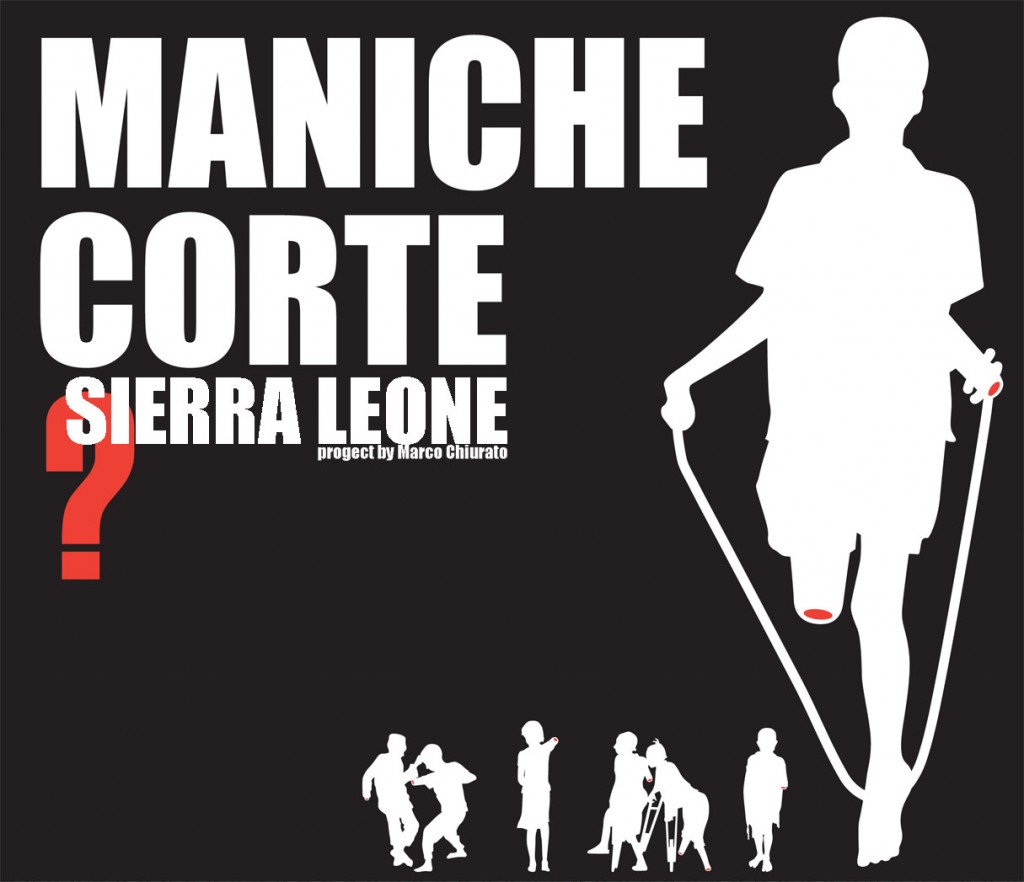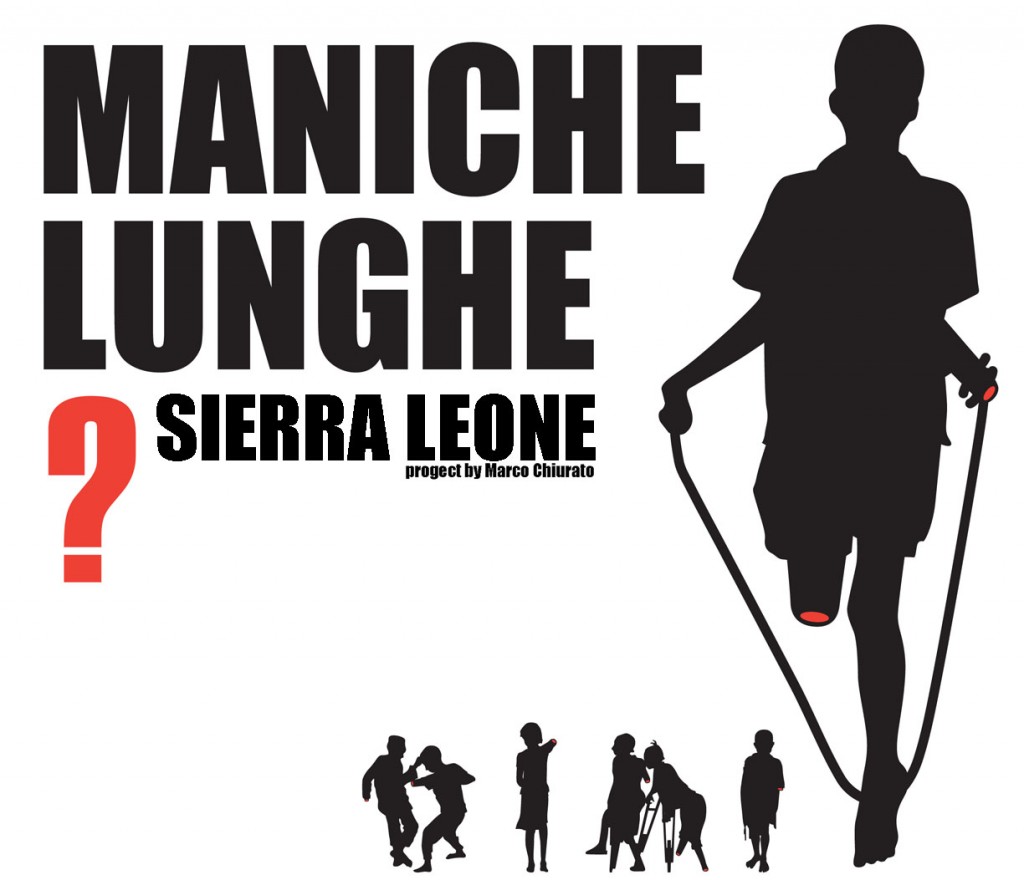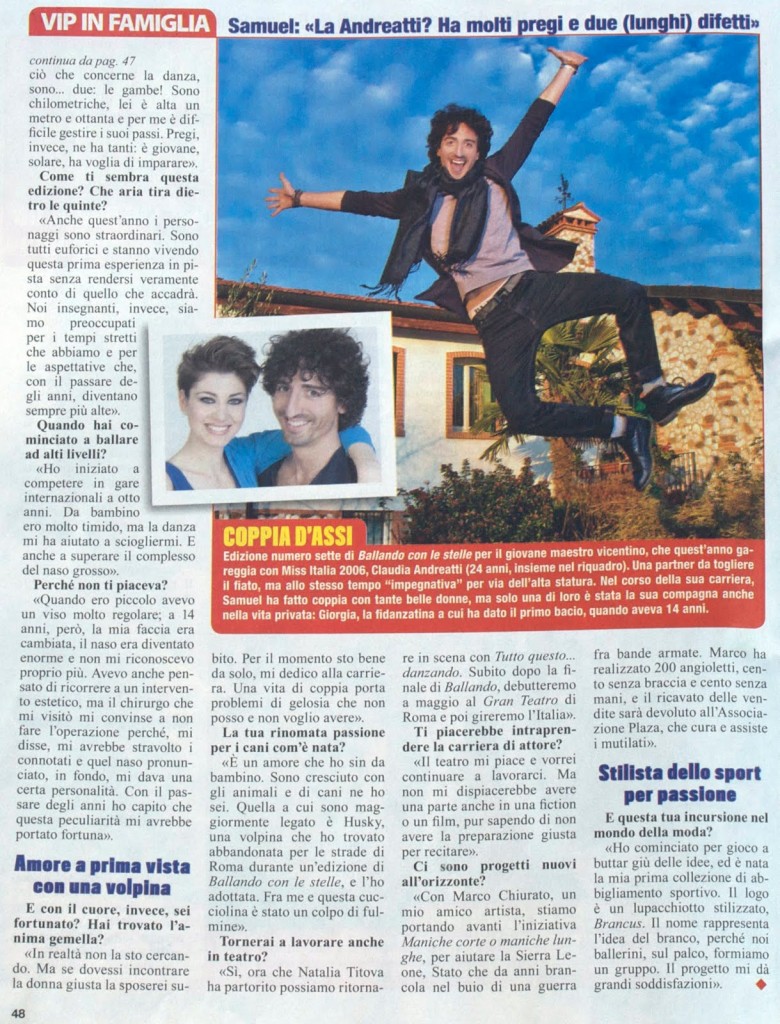“PROGETTO FINITO” NON ANCORA PORTATO A TERMINE
“Maniche corte o maniche lunghe?
a breve in vendita.
“Maniche corte o maniche lunghe?”
Questa domanda sembra apparentemente divertente e canzonatoria, ma non tutti sanno che, se viene pronunciata in Sierra Leone, nasconde l’orrore.
Dal ’97 quando avvenne il colpo di Stato per opera dei ribelli del Fronte Unito Rivoluzionario (RUF), questo Paese brancola alla cieca in una guerra tra bande armate, odi tribali e una sanguinaria lotta per le straordinarie risorse di diamanti.
Una delle più barbare forme di violenza da parte dei ribelli è l’amputazione degli arti. Viene ordinato ai civili di sdraiarsi con la faccia a terra poi, a uno a uno, viene posta la terribile domanda: è la modalità per far scegliere se si vuole essere amputati ai polsi o al gomito a colpi di machete.
Questa forma di violenza, così macabra e disumana, ha ispirato l’opera di Marco Chiurato.
L’artista ha realizzato 200 angioletti, che ricordano i putti rappresentati in molte chiese e opere d’arte.
Cento di questi angioletti sono stati realizzati senza braccia e cento senza mani, il che rispecchia la doppia modalità di amputazione: ai polsi o al gomito.
Il testimonial dell’opera sarà il ballerino Samuel Peron e qui la scelta non è stata casuale: i ballerini infatti utilizzano tutti gli arti in modo esponenziale, cosa che purtroppo non potranno mai più fare le persone che hanno subito un’amputazione.
Le opere di Chiurato potranno essere acquistate e il ricavato sarà donato all’Associazione Plaza per poi essere devoluto ad un’associazione che opera in Sierra Leone nella cura e nell’assistenza dei mutilati.
“Maniche lunghe o maniche corte?” L””opzione spensierata e allegra che il boia poneva prima di procedere al taglio, esigeva la sua risposta, solo dopo ti accontentava. Nata in Sierra Leone, durante i 10 anni della guerra civile, questa formula fece la sua fortuna ed ebbe una certa celebrità perché – parafrasando Pascal – l””orrore ha le sue ragioni che la ragione non conosce. Ha ragioni politiche, ha ragioni d””uso, ha ragioni che noi non conosciamo e che abitano il profondo dei nostri incubi. Marco Chiurato ci mette davanti i suoi angioletti mozzi e ci ripropone la questione: perché proviamo tanto orrore davanti a questa semplice domanda? Maniche corte o maniche lunghe. Chiurato ha ragione e fa bene a interrogarci perché si rivolge al cuore del nostro orrore, parla del boia che ci portiamo dentro e che ci accompagna. Vuoi più bene alla mamma o al papa? Preferisci morire affogato o schiantato? Vorresti essere bello e povero oppure ricco e brutto? Ogni volta che formuliamo un””opzione di questo tipo, neghiamo la libertà che la presuppone e facciamo della scelta un paradosso ghignante, in realtà evochiamo l””inferno, il nostro inferno. Al modo in cui ci confonde il bene nato dal male, nella maniera che sentiamo quando vediamo il male nascere dal bene, la libertà di farsi tagliare le mani o, a piacere, le braccia intere, è l””orrore della libertà concessa da chi te la sta per togliere del tutto, la maschera stravolta della nostra volontà e l””eterogenesi dei fini che ride e ci vuole folli. La facoltà di scegliere il tuo male è essenzialmente demoniaca.
Di fronte all””orrore a cui ci rimanda Chiurato persino la morte sembra consolante, quando arriva e rassicura perché non puoi più farci niente, allora che non centri più. Maniche lunghe o maniche corte? Chiurato ci fa apparire pietosa persino la sicurezza con cui le società comminano la pena di morte, confortante quando è accompagnata da un messale, grande nella la liturgia che la celebra e fastoso quanto piu grande e sontuoso è l””omaggio alla vita che si va a togliere.
Persino la morte industriale del secolo scorso distese l””orrore ultimo senza farsi questa domanda. Primo Levi si interrogò a lungo sul caso e il destino, scartò quest””ultimo e non chiese mai conto neanche ai kapò del male con cui l””inferno veniva a bussare chiedendo cos””era meglio per loro con: vuoi morire uccidendo o preferisci vivere morendo? Maniche corte o maniche lunghe?
L””orrore per essere politicamente utile non basta che sia grande, deve essere infettivo, deve propalarsi e contagiare di sé anche colui che non lo prova direttamemte. Ecco, quella semplice domanda porta con sé il seme, ha il potere del contagio e la forza di evocarlo. Il colonnello Kurz in “Cuore di tenebra” muore gridando “l””orrore, l””orrore”, Conrad ne fa il prototipo dell””uomo che formulò per sé la domanda: abbruttirsi sterminando le vite dei bruti o diventare un bruto risparmiandole? Maniche
corte o maniche lunghe?
“Long sleeves or short sleeves?”. The cheerful and thoughtless option that the executioner put before to proceed with the cut. He required his answer, only after he satisfied.
Born in Sierra Leone, during the 10 years of Civil War, this system made its fortune and had big celebrity because – paraphrasing Pascal – the horror has its reasons that the reason doesn’t know.
It has politic reasons, use reasons, it has reasons that we don’t know and that live the depth of our nightmares. Marco Chiurato puts us in front of his docked little angels and he repeats the question: Why do we feel so much horror in front of this simple question? “Long sleeves or short sleeves?”. Chiurato has reason and he does well to interrogate us because he calls on the heart of our horror. He tells of the executioner that we have inside and that follows us. Do you love more you mom or your father? Do you prefer to die drowning or crashing? Would you like to be beautiful and poor or rich and ugly? Each time we put an option of this kind, we deny the freedom that requires itself and we make of our choice a grinning paradox; in fact we evoke the hell, our hell.
To the way in which the good arises from evil confuses us. In the manner that we feel when we see the evil rising from the good. The freedom of making our hands to be cut, or, as much as one likes, the whole arms. It is the horror of the conceded freedom from who is going to taking it forever, the contort mask of our will and the purposes heterogenesis that laughs and wants us crazy.
The faculty of choosing your evil is essentially demoniac.
In front of the horror to which Chiurato puts us, even the death seams us comforting. When it comes and reassures because you can’t do nothing else, when you are not part of it any more. Long sleeves or short sleeves? Chiurato shows us even pitiful the security with which the societies inflict the death penalty, consoling when it is accompanied by a missal, big in the liturgy that celebrates it and magnificient as bigger and more sumptuous it’s the homage to the life that they are going to take.
Even the last century industrial death offered the last horror without asking this question. Primo Levi asked himself a lot of the chance and the destiny. He refused this last and he never asked the kapos about the evil with which the hell was coming asking what were better for them with: “Do you want do die killing or do you prefer live dying? Long sleeves or short sleeves?
The horror of being politically useful is not enough if it is big. It must be infective, it must spread and contaminate also who doesn’t feel it directly. Here, the simple question brings the seed, it has the power of infecting and the force to invoke it. The colonel Kurz in “Heart of Darkness” dies shouting “the horror, the horror”. Conrad made him the prototype of the man who formulated for himself the question: to brutalize exterminating the lives of the brutes or to become a brute sparing them? Long sleeves or short sleeves??
Text written by Emilio Randon
Translation by Alinka Bonotto


